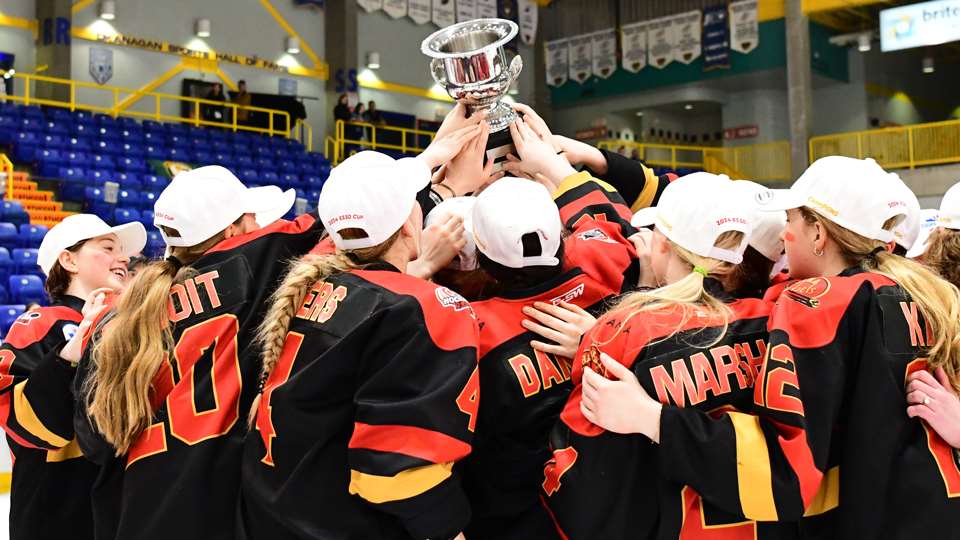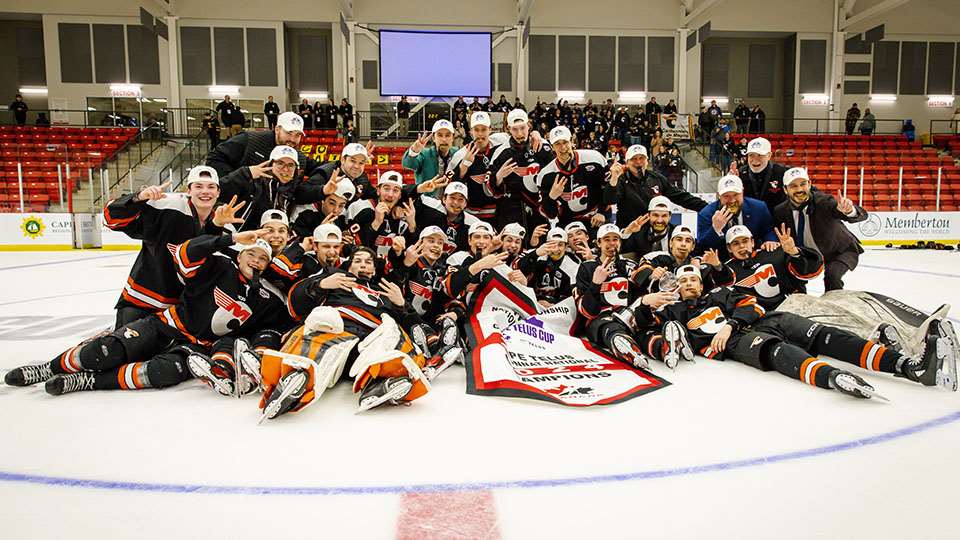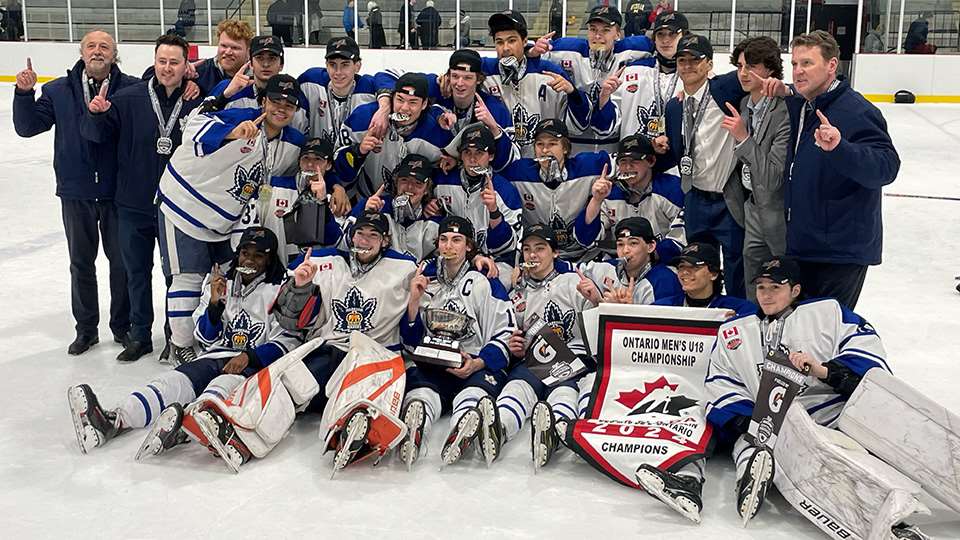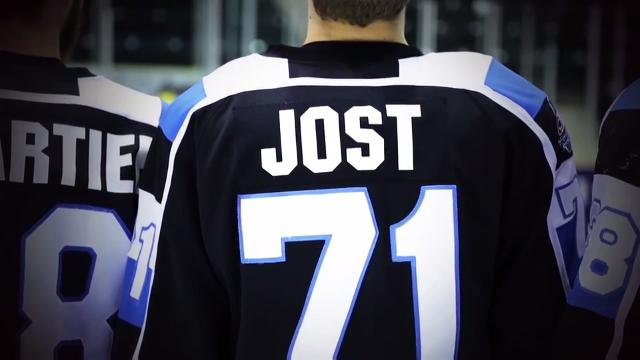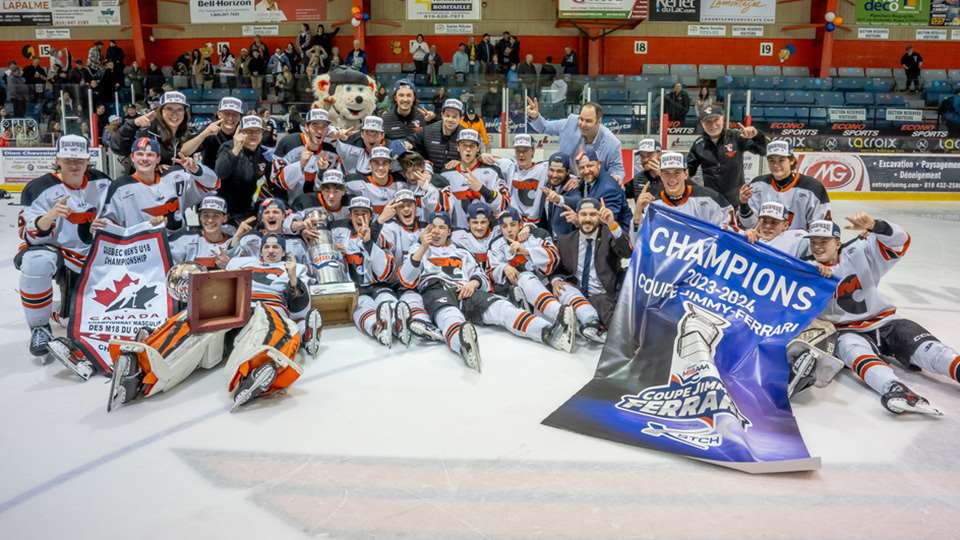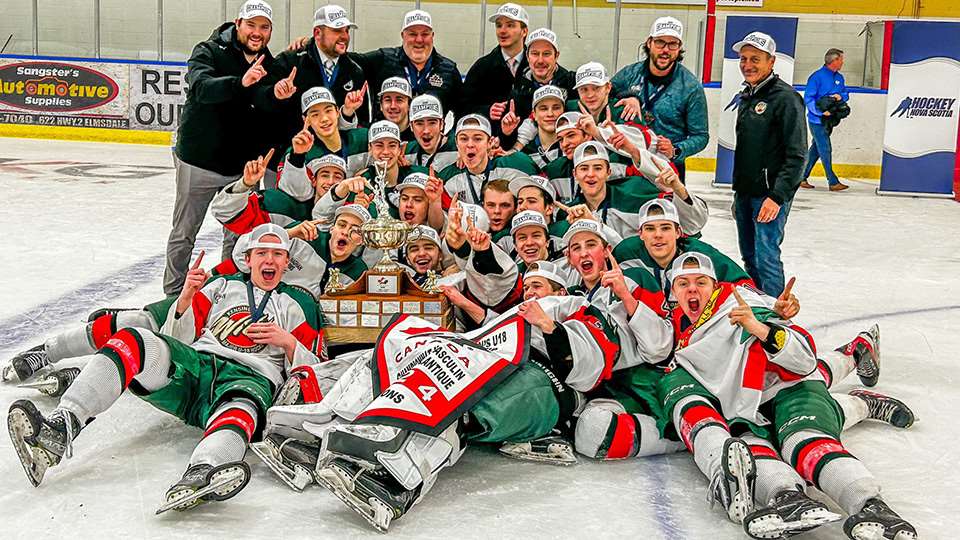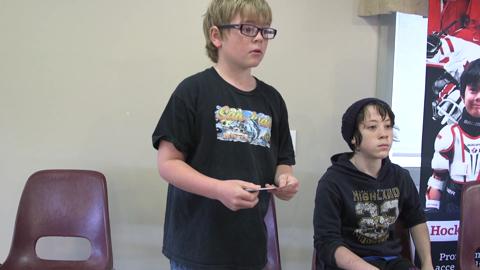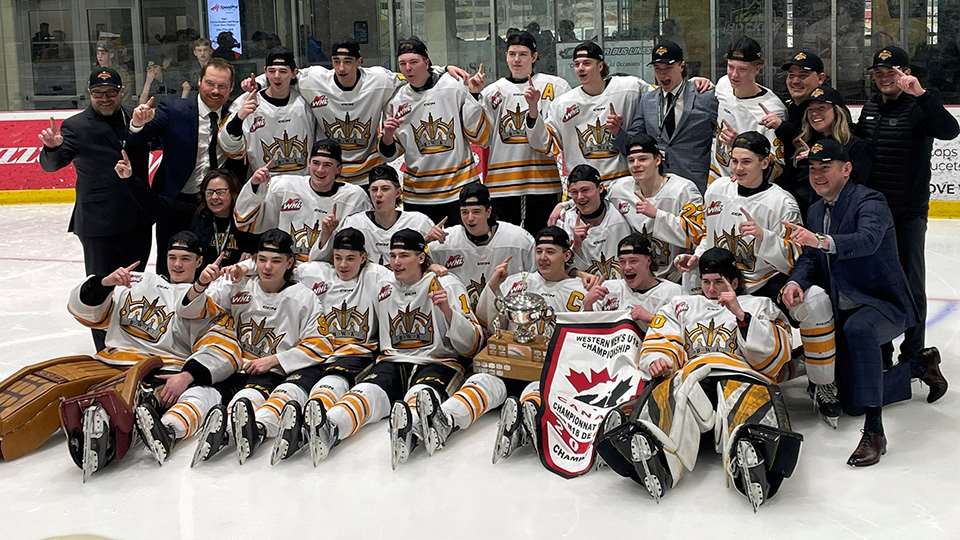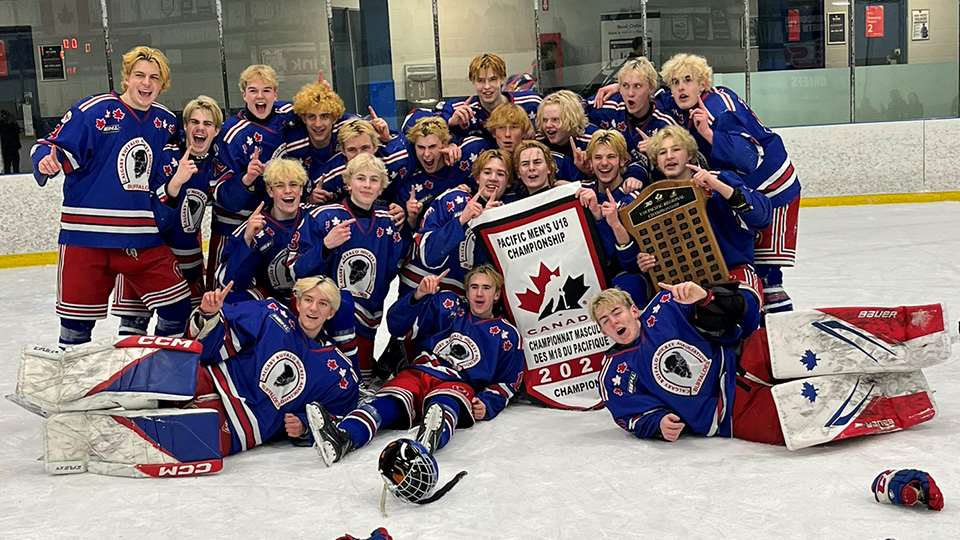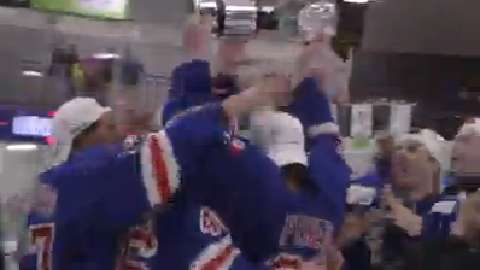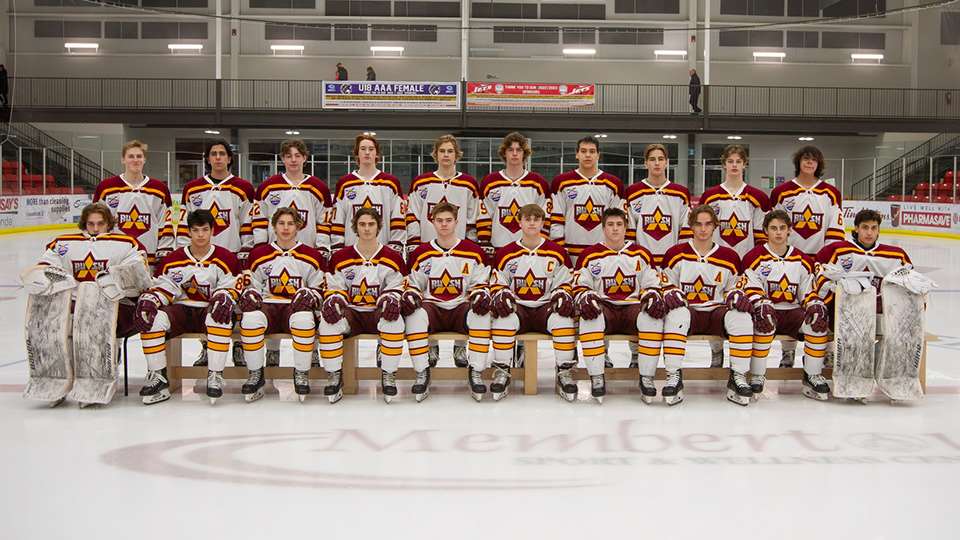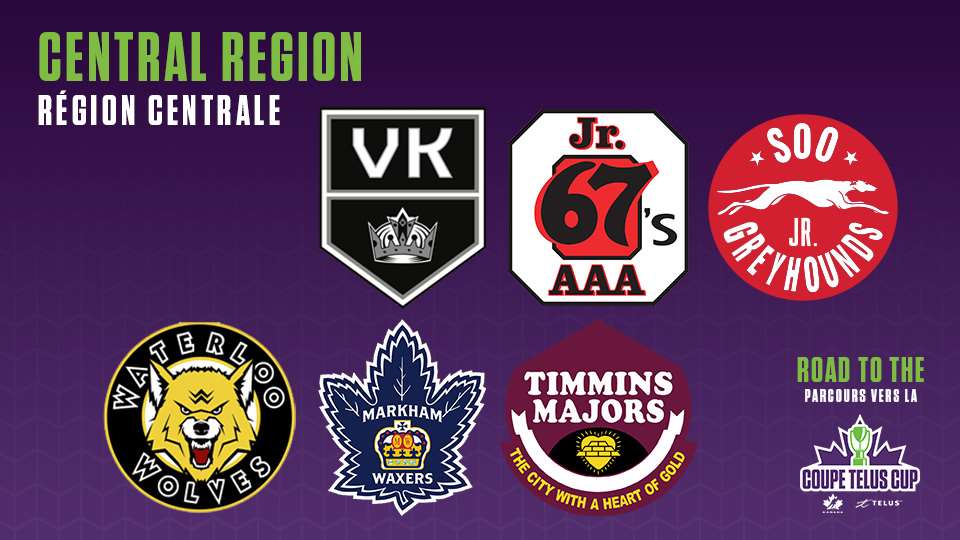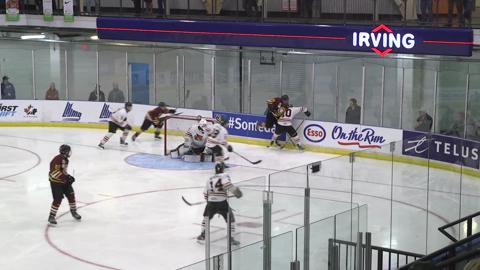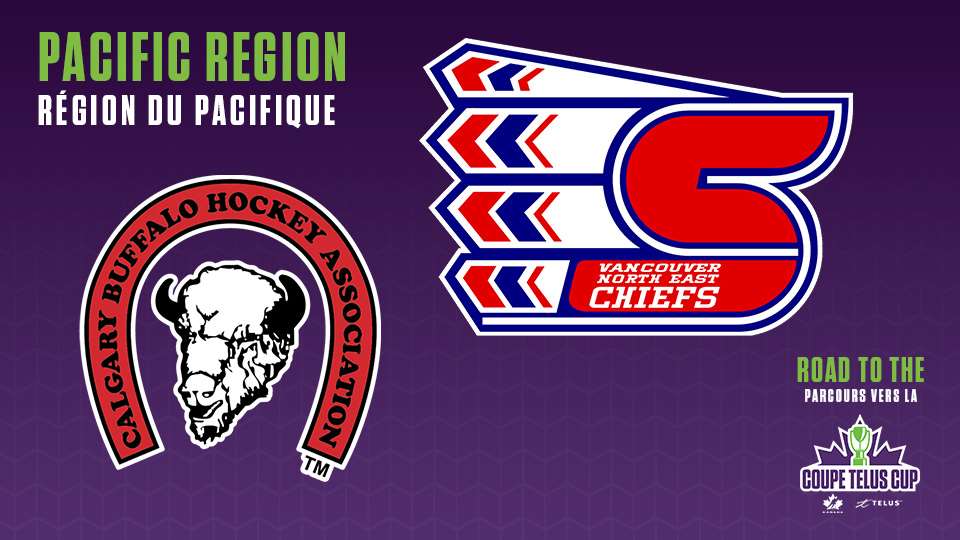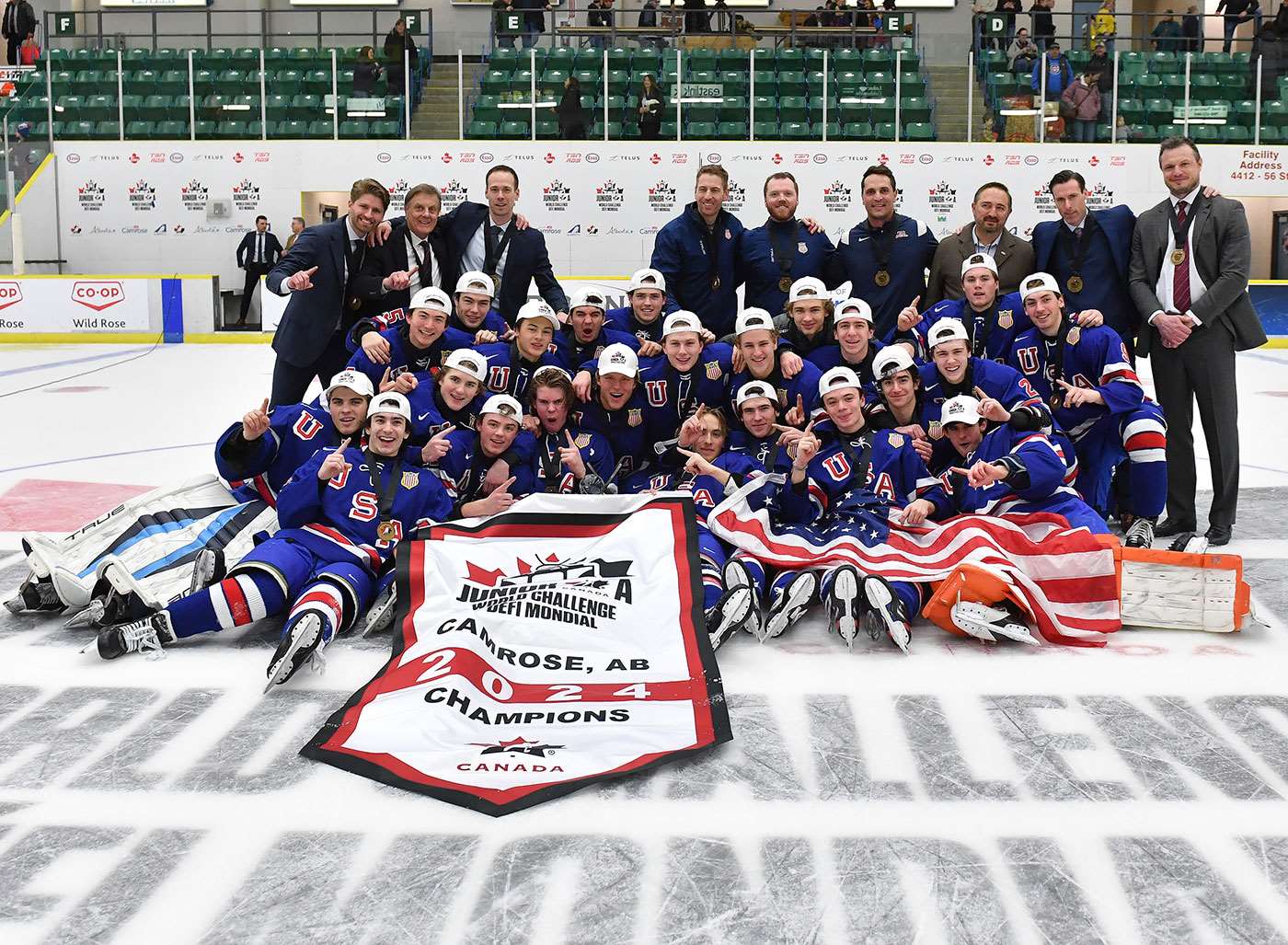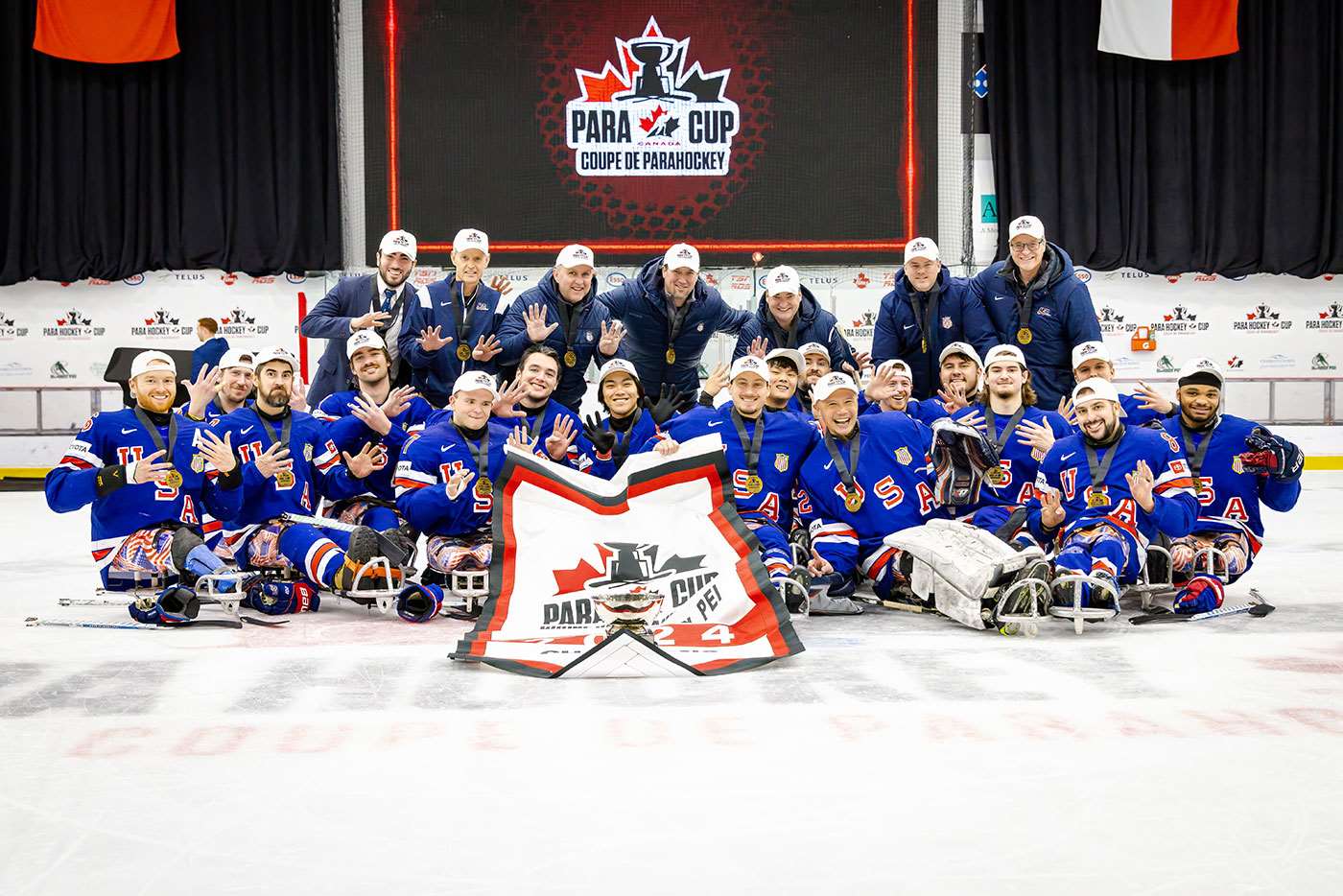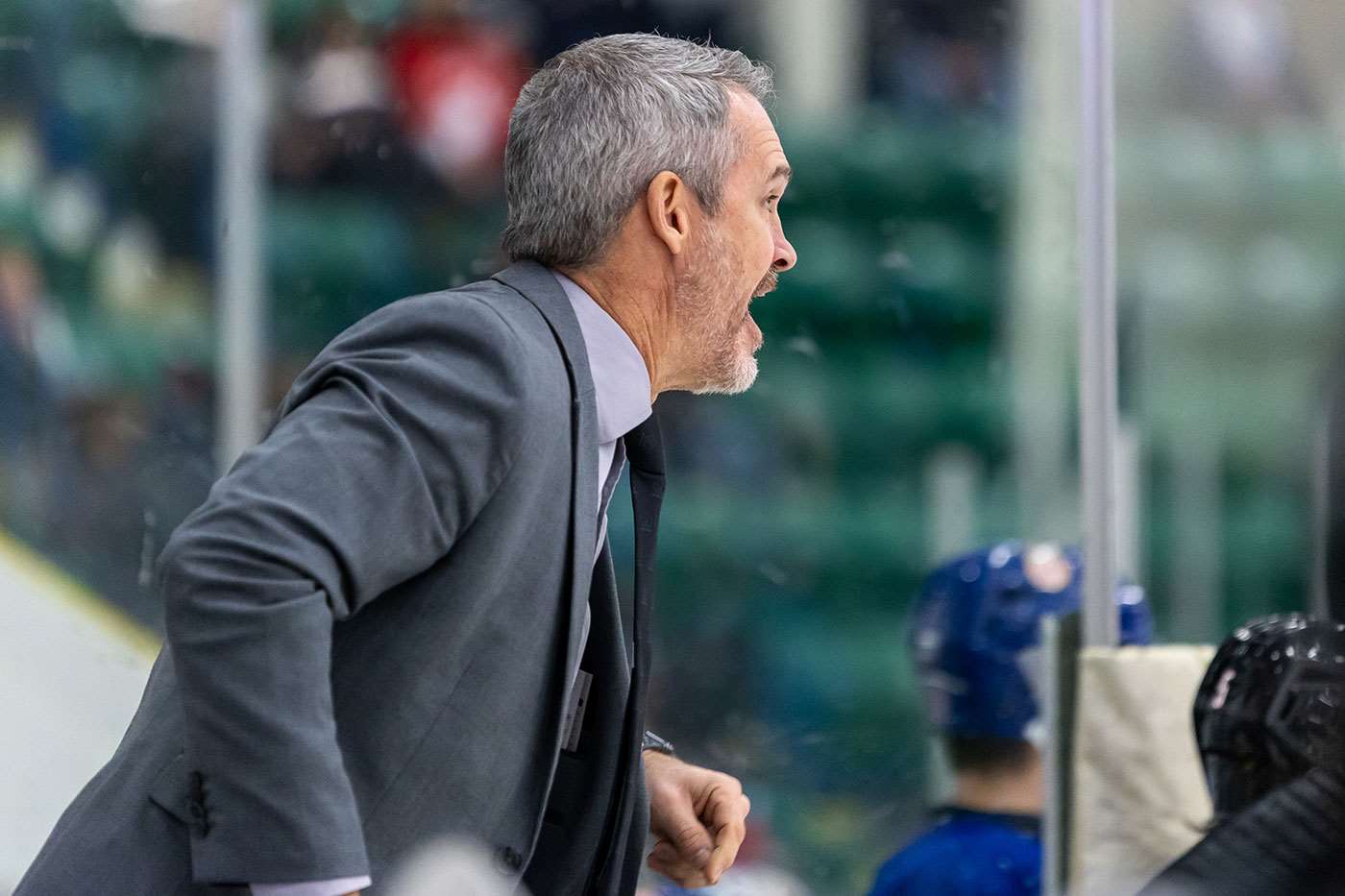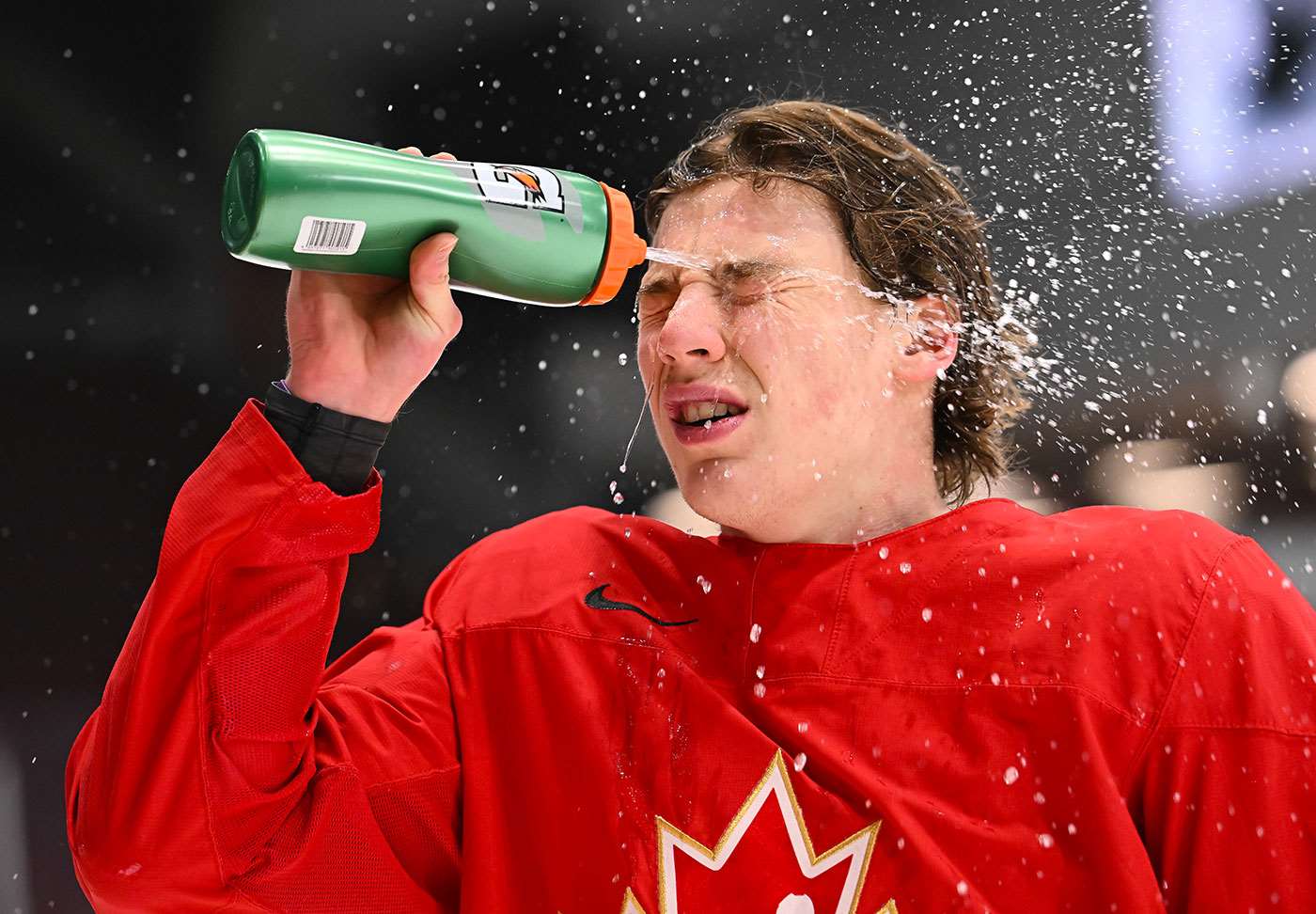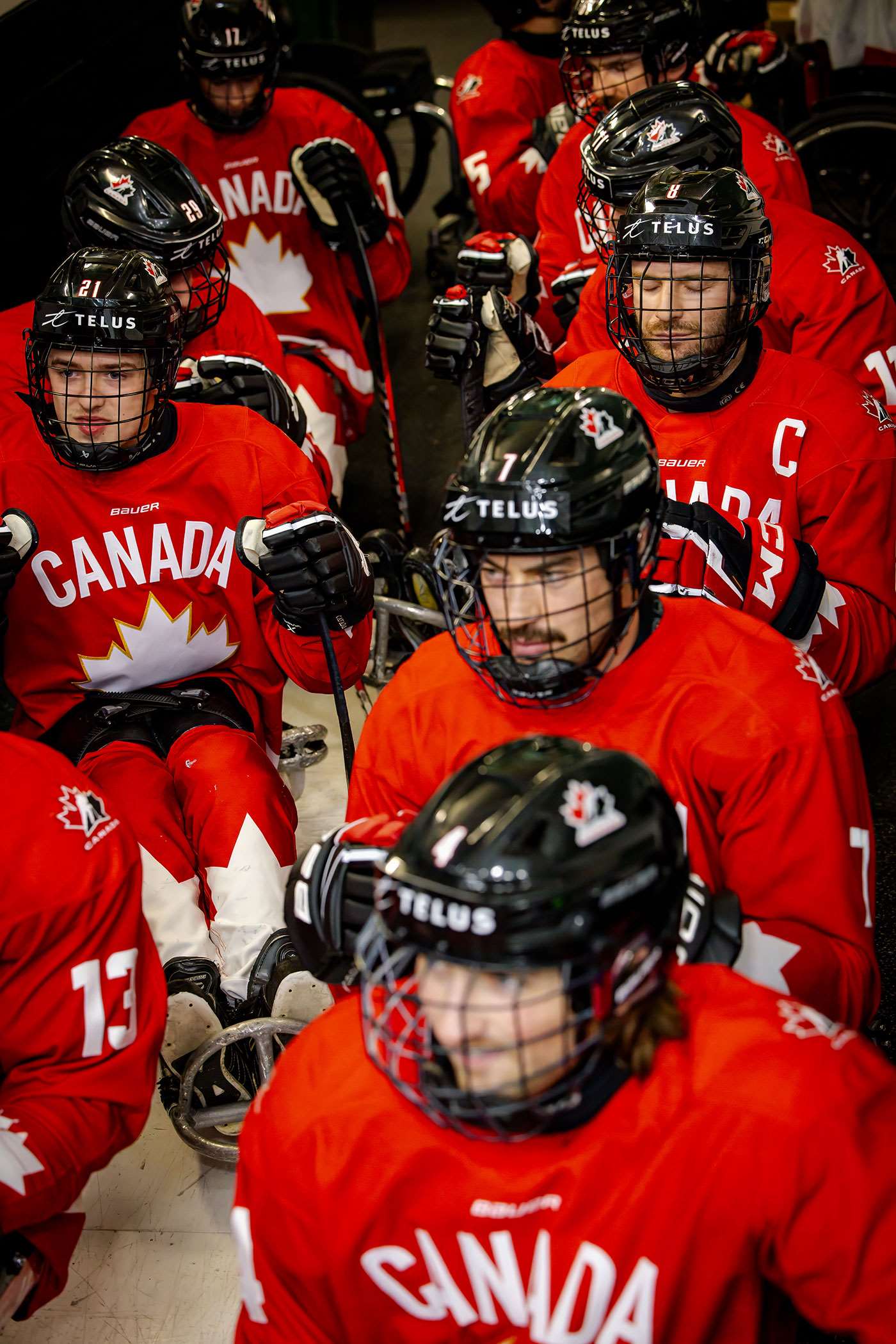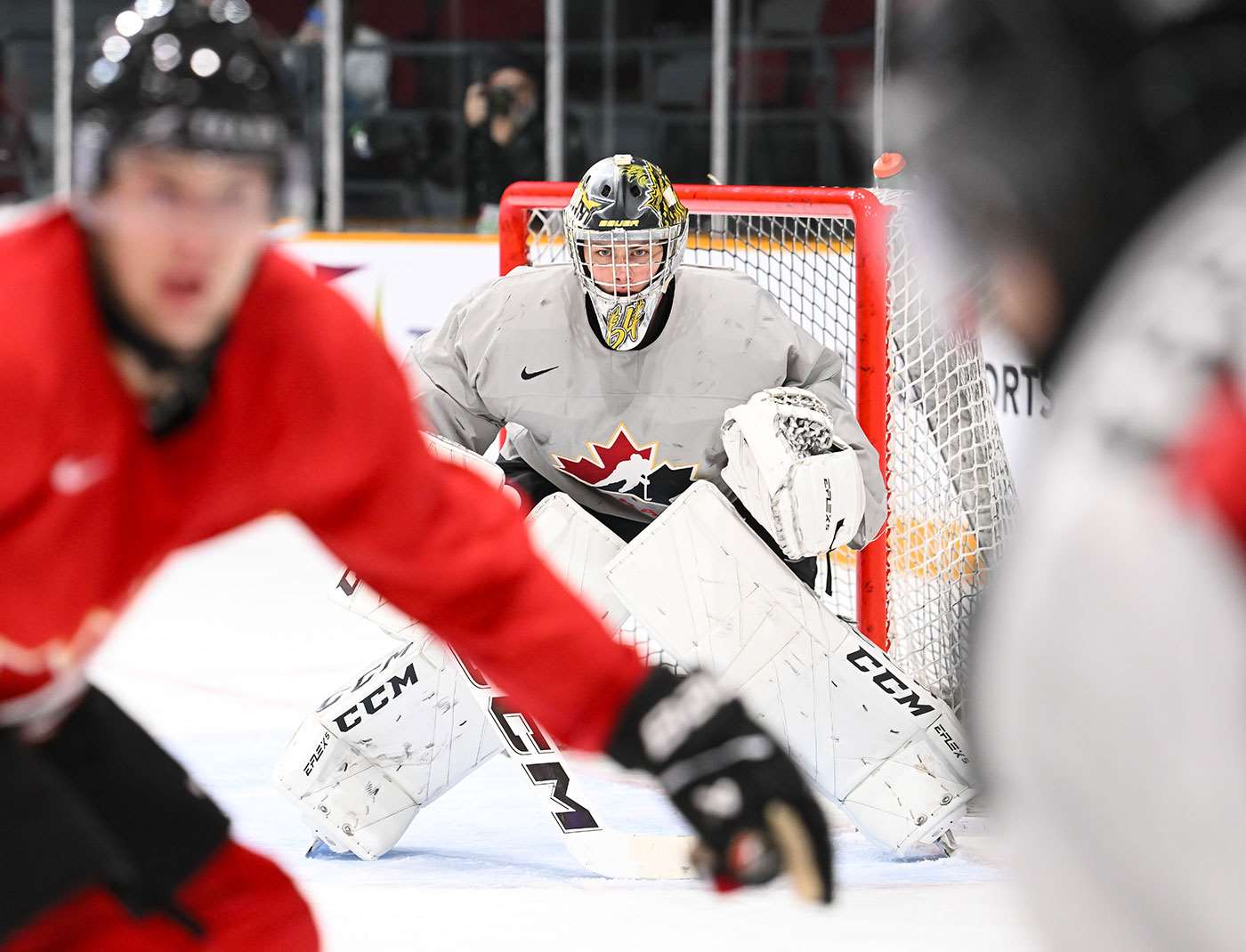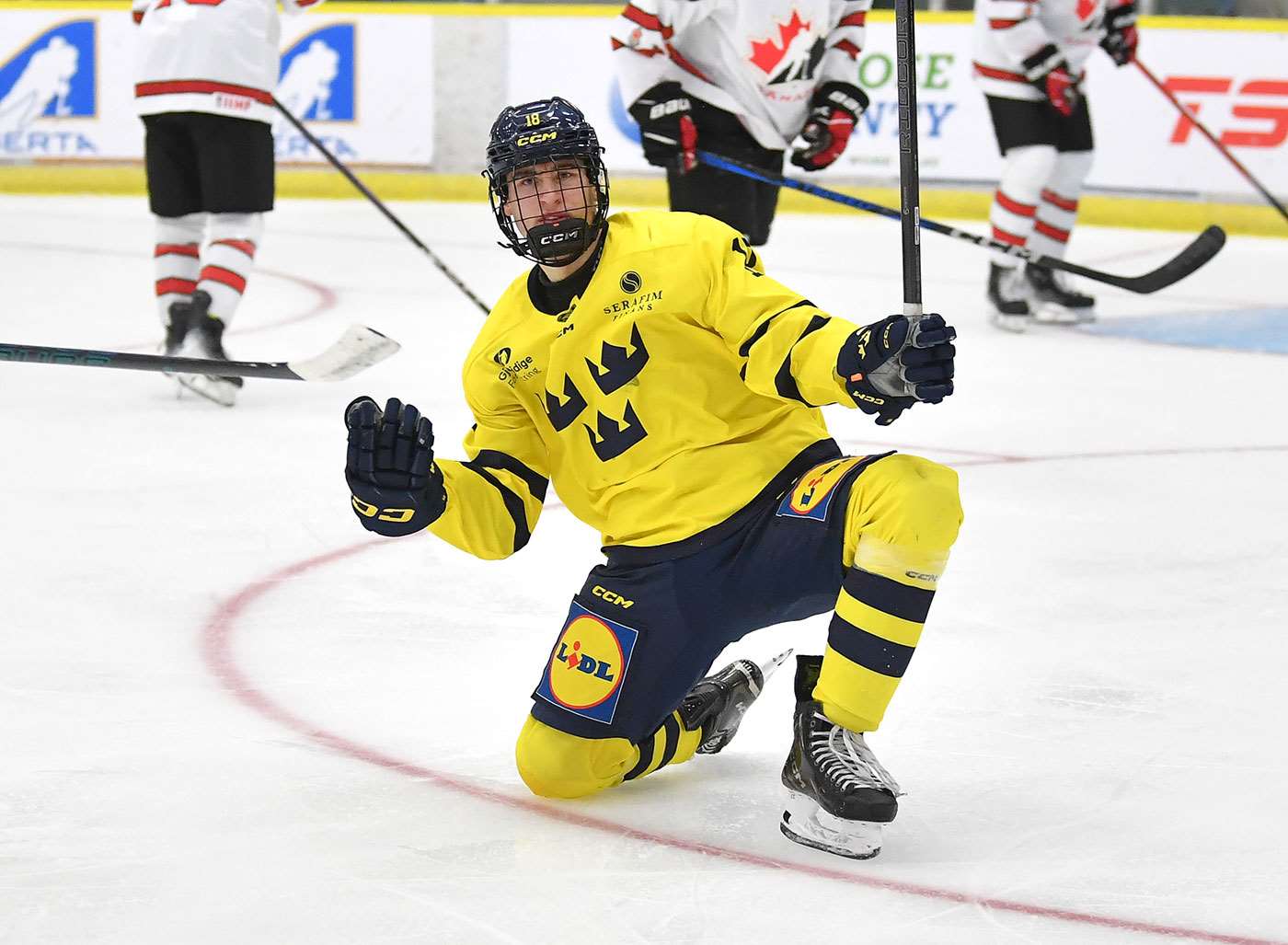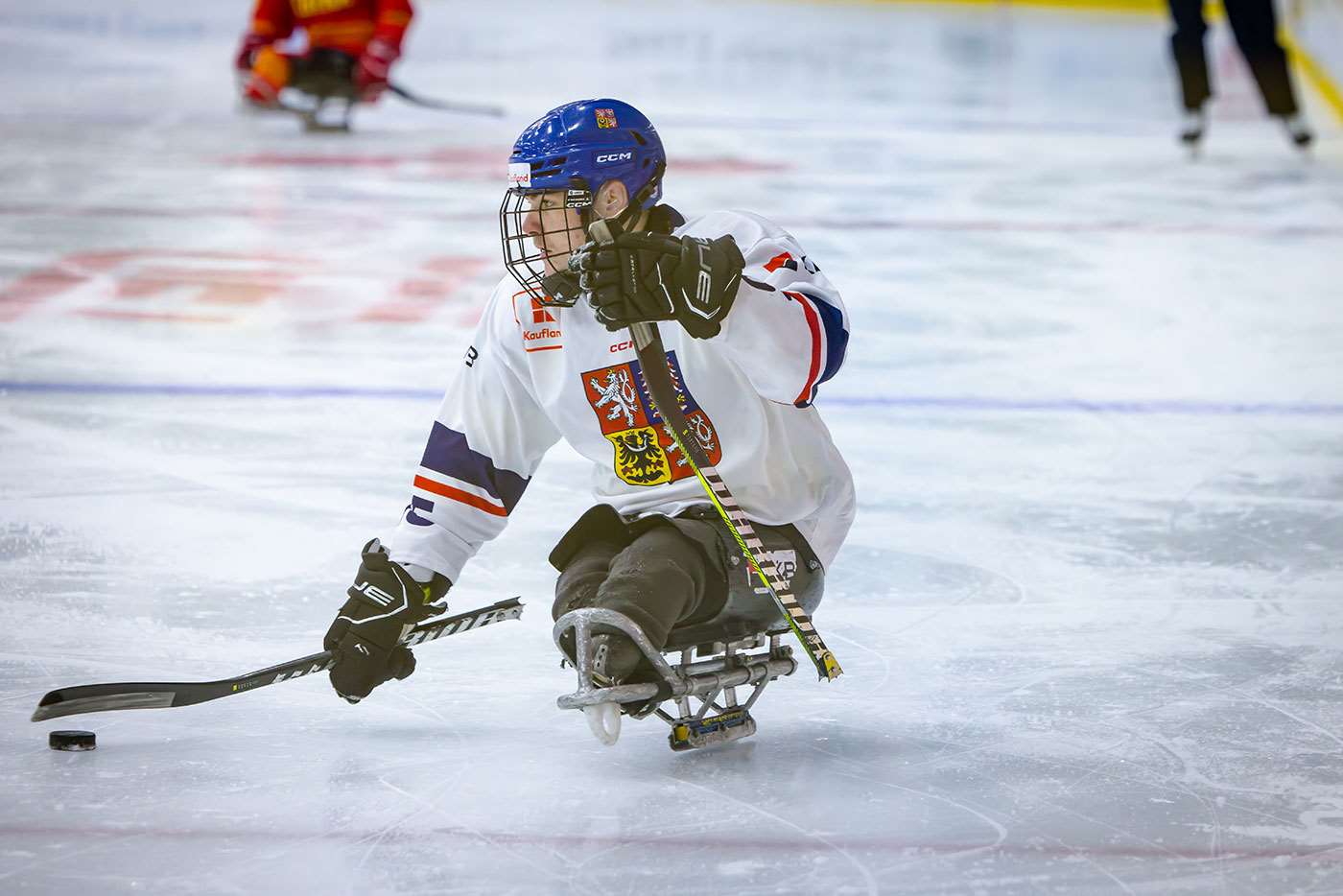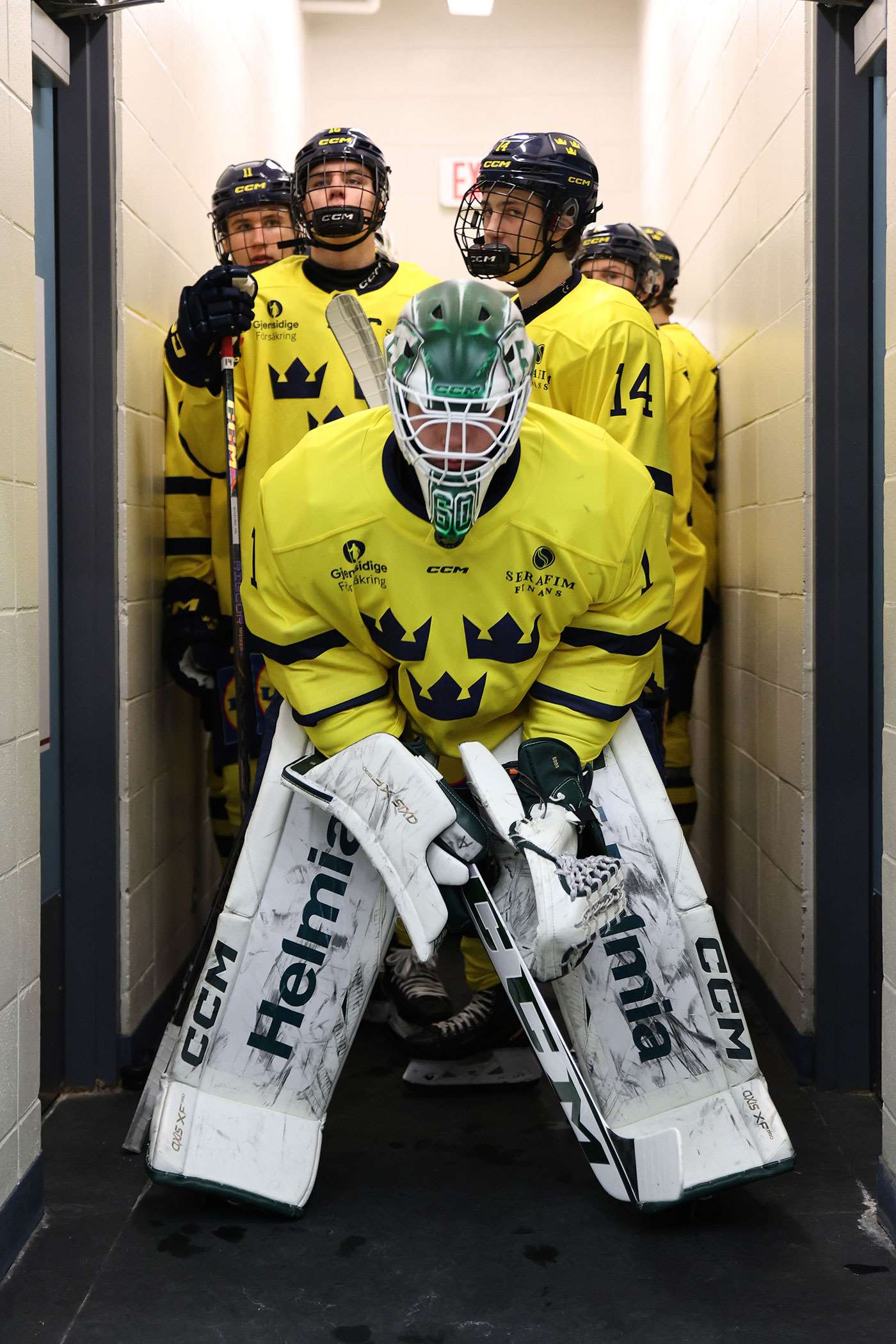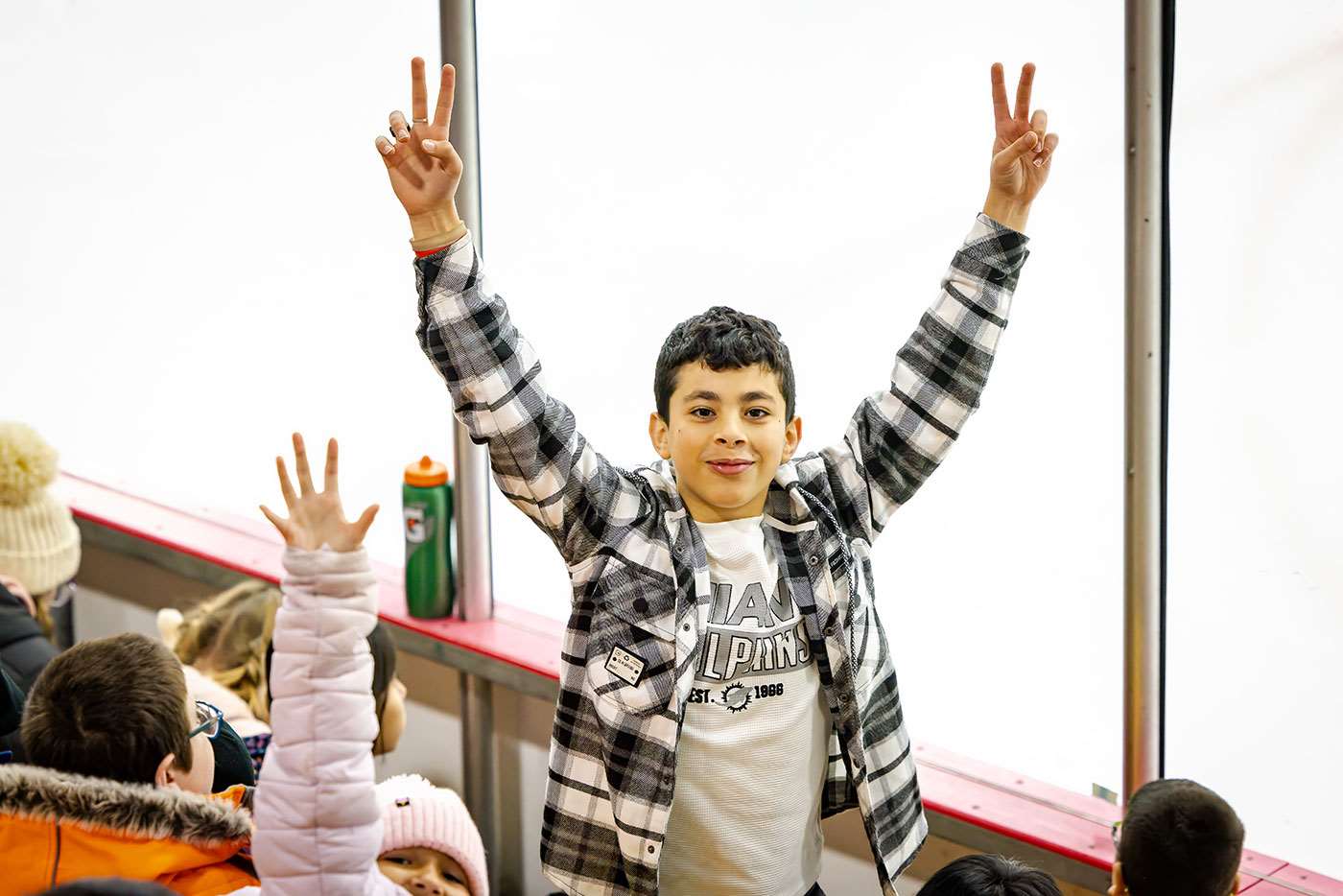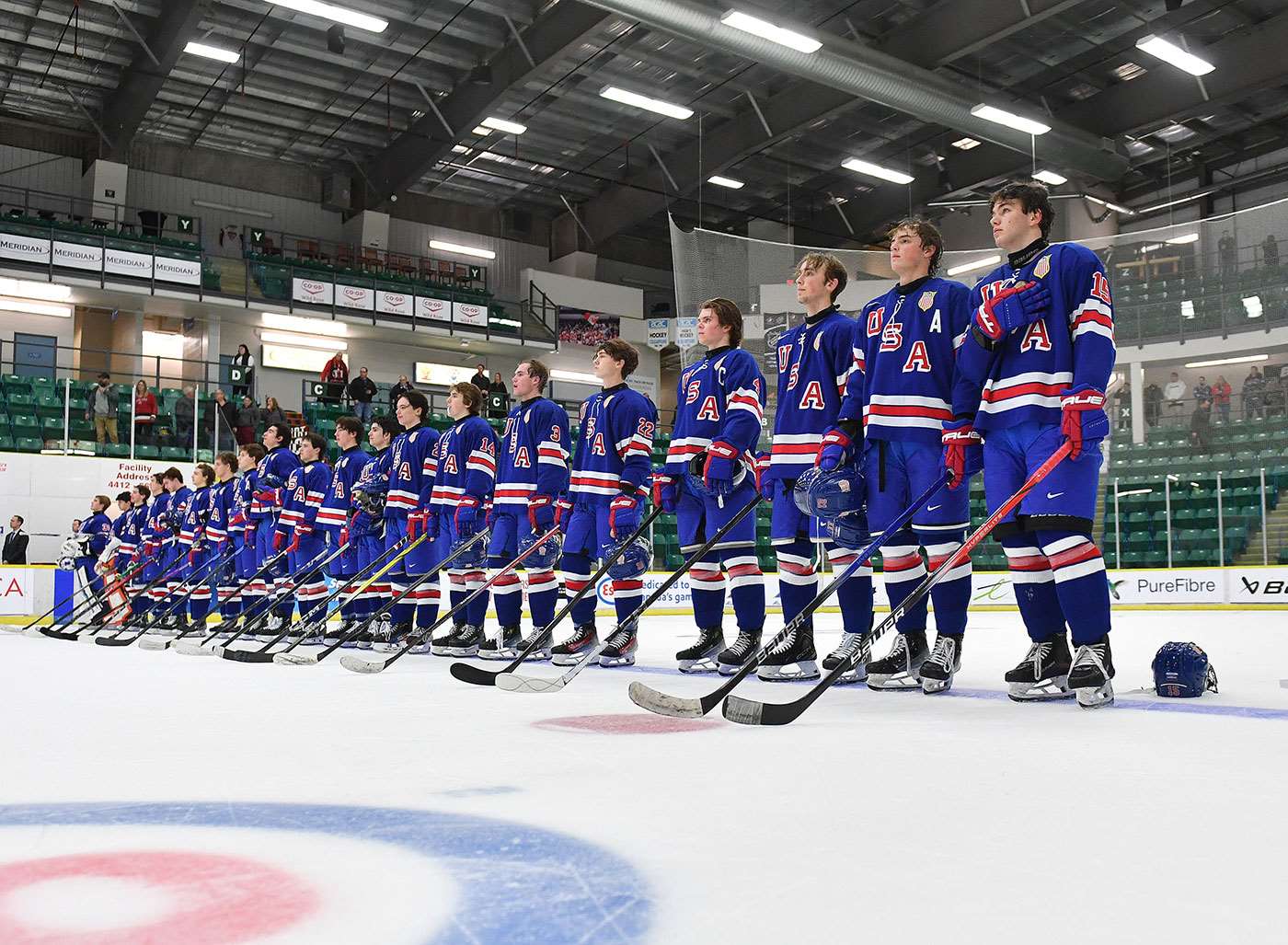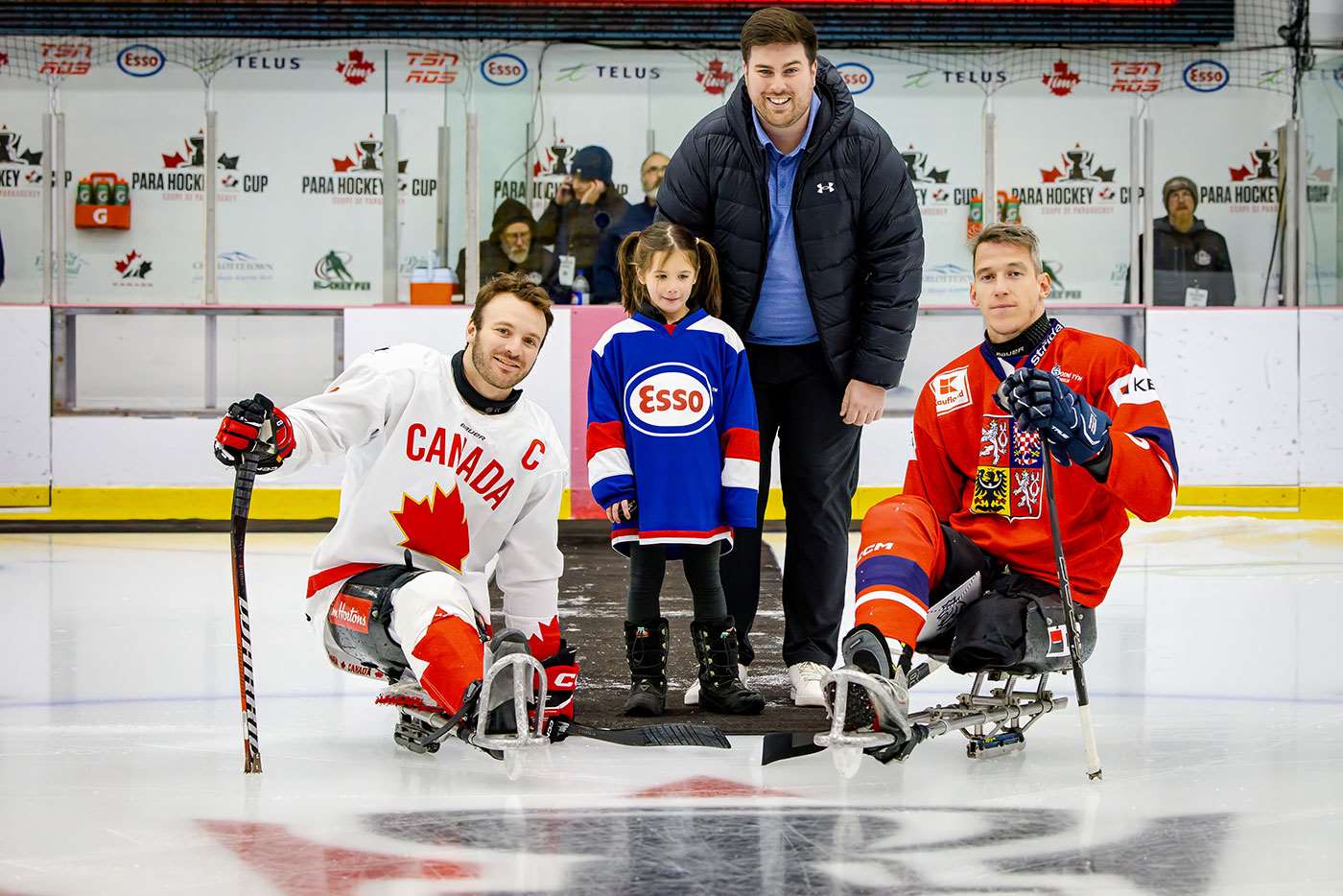
Schedule
Team Canada (Men)
IIHF World Junior Championship | Dec. 26, 2024-Jan. 5, 2025
Spengler Cup | Dec. 26-31, 2024
4 Nations Face-Off | Feb 12-20, 2025
IIHF U18 World Championship | April 23-May 3, 2025
IIHF World Championship | May 9-25, 2025
U17 World Challenge | Nov. 3-9, 2024
Hlinka Gretzky Cup | Aug. 5-10, 2024
Junior A World Challenge | Dec. 9-15, 2024
National Junior Team vs. USPORTS | Dec 12-13, 2024
Search
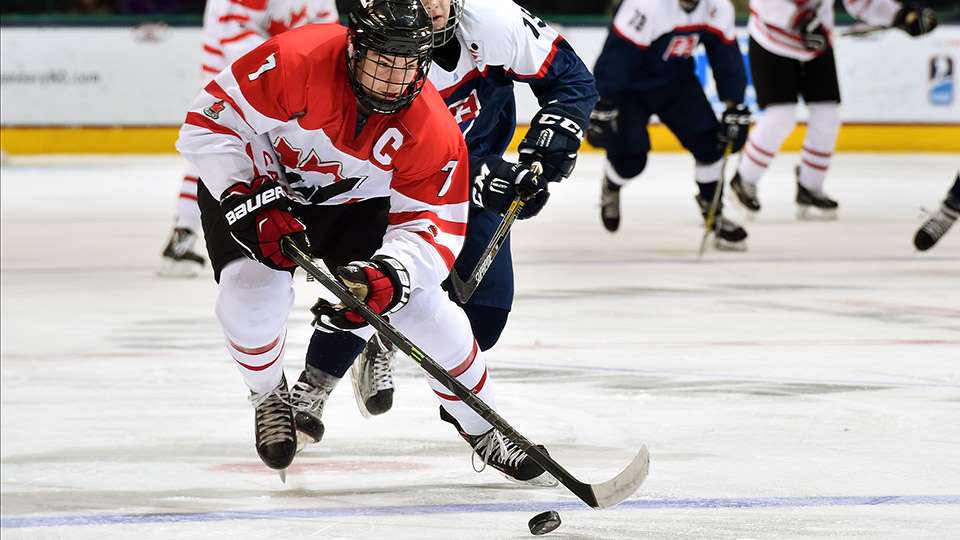
From the TELUS Cup to Team Canada
Six players who competed at Canada’s National Midget Championship are on the international stage this spring

It seems everywhere you look this spring, TELUS Cup alumni are wearing the red and white in international competition.
Between the IIHF U18 World Championship currently taking place in Grand Forks, N.D., and the IIHF World Championship that will hit the ice next month in Moscow and St. Petersburg, Russia, six players who have Canada’s National Midget Championship on their résumé are on Team Canada duty.
Tyson Jost is wearing the ‘C’ with Canada’s National Men’s Under-18 Team just two years after helping the Okanagan Rockets to a bronze medal at the 2014 TELUS Cup, while Pascal Laberge, in 2014, and Maxime Comtois, in 2015, both took silver with the Grenadiers de Châteauguay.
And of the initial 18 players named to Canada’s National Men’s Team, Sam Reinhart, Morgan Rielly and Mark Stone all had varying degrees of success at the national championship.
So what lessons did they learn on the biggest stage in minor hockey that they have kept with them?
For Laberge, the learning process began before he had even stepped foot on the ice in Moose Jaw, Sask.
“I remember it was my first time hopping on an airplane and playing away from home,” he says. “When we arrived there, we were immediately treated like professionals.
“You can see how serious it is when Hockey Canada is handling it just by the way they treat everyone. It was definitely the first time that I had been treated like that. The experience as a whole was superb.”
While Rielly is the only member of the group to win a national title, hosting the TELUS Cup with the Notre Dame Hounds in 2010, Laberge sure came close – his Grenadiers lost the longest game in tournament history, falling to the Prince Albert Mintos after almost 109 minutes of hockey in the 2014 gold medal game.
But the seven-day grind that is the TELUS Cup taught Laberge to take a shift-by-shift approach and focus on the small details – on and off the ice – that go into being successful, both lessons he’s using at U18 worlds.
For Rielly, the Hounds’ championship run was a chance to get familiar with the best the country had to offer.
“It was about playing against the best players in your age group; it was a great experience and one that I’ll always remember,” says the Toronto Maple Leafs defenceman.
“If I had the chance to speak to some of the kids [in Quispamsis, N.B., this week] I’d tell them to really enjoy it. Looking back on it it’s just a great opportunity for young players to play against the best players out there.”
Stone certainly didn’t have the ending he wanted – his Winnipeg Thrashers fell to Sudbury in the gold medal game in 2008, just their second loss in 60 games all season – but even eight years later, he’s quick to tip his hat to some heroes that are too often left unrecognized.
“What struck me the most are the volunteers; you never realize how many people need to be involved in order to run a tournament like that one,” says Stone, who took home Top Scorer honours from Arnprior, Ont. “And for them to make that week so special to 16- and 17-year-old kids speaks volumes of their importance. I thought it was a lot of fun, and pretty cool to look back on.”
And for Reinhart, his 2011 TELUS Cup experience, which ended with a bronze medal game loss, taught him to not only adapt to a new environment, but also to a new format of games, including an intense schedule.
“You kind of learn how to play in that tournament format and knockout stages,” he says. “You need to understand that you need to be at your best for that short period of time and consistent as well. It’s about learning to adapt to game in and game out situations and it’s an important thing to have.
“The format is always hard on you. But you need to learn to battle through and stick with it.”
While everyone had a different opinion on what they learned from their first taste of a national championship, one common thread is the memories, and the memories seem to circle back to the pressure of playing for a national title.
No matter how physically ready they were, nothing prepared them for the mental side of the game.
For players in their mid-teens, playing in front of large crowds in every game and, for some, on national television in the final, the full TELUS Cup experience was a sign of what was to come in their futures.
“We played in front of schools that would visit and there was a bunch of people that would come to the games, so it was my first experience playing in a rink that was full at all times,” remembers Stone. “Being a kid that age I was obviously excited about playing in my first game on TV. I think that tournament really helped me prepare for that next level.”
“When you’re a young kid you don’t really know what to think of all that pressure,” adds Rielly. “But when the TV cameras are there and people are asking you questions for the first time in your career, you’ve got to learn to deal with it and that’s where it starts.”
For more information: |
- <
- >

















